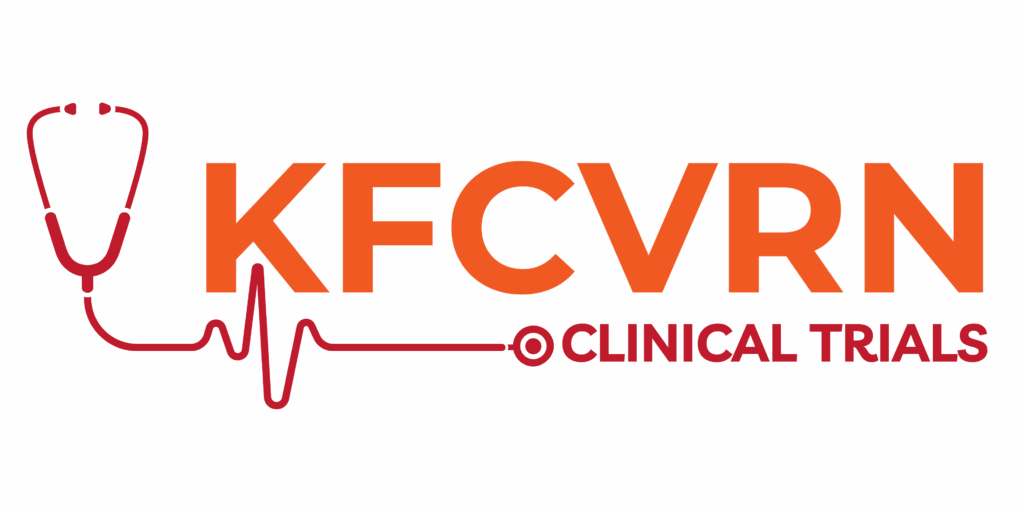Deciding to participate in a clinical trial is an important choice — one that can not only impact your own health but also help shape the future of medicine. At KFCVRN, we understand that joining a study might feel overwhelming at first, especially if it’s your first experience with research. That’s why our team is committed to making the process transparent, supportive, and empowering from the very beginning.
This guide will walk you through what to expect when joining a clinical trial at KFCVRN — step by step — so you can feel confident and informed every step of the way.
Understanding Clinical Trials
Before diving into the process, it’s helpful to understand what a clinical trial really is. A clinical trial is a carefully designed research study that evaluates the safety, effectiveness, and potential benefits of new medical treatments, drugs, or procedures. These trials are essential for discovering better ways to prevent, diagnose, and treat diseases.
Every medicine and treatment available today — from vaccines to cancer therapies — has gone through rigorous clinical trials. Volunteers like you make this possible. By participating, you play a vital role in bringing new hope and better health outcomes to patients everywhere.
At KFCVRN, our mission is to make clinical research more accessible, ethical, and participant-focused. We believe every person who joins a study deserves to be fully informed, respected, and supported throughout their experience.
Step 1: Finding the Right Study for You
The first step in joining a clinical trial is determining which study is right for your health needs and personal goals. At KFCVRN, we conduct research across multiple medical fields — including oncology, neurology, cardiology, metabolic disorders, pediatrics, and infectious diseases — to address a wide range of health conditions.
When you reach out to our team, we’ll begin with a simple conversation. We’ll ask about your medical history, current medications, lifestyle factors, and what you hope to achieve by joining a trial.
Using that information, our specialists match you with studies that align with your profile. This personalized approach ensures that you’re only considered for trials that fit your health background and comfort level.
Step 2: Learning About the Study
Once you’ve been identified as a potential participant, the next step is learning all the details about the study. Our team will provide a comprehensive overview, which includes:
- The purpose of the study and what it hopes to achieve
- The treatment or intervention being tested
- The duration of the trial and visit schedule
- Any potential risks or side effects
- The possible benefits of participation
- Your rights as a participant
This stage is all about informed consent, meaning you’ll have every opportunity to ask questions and get clear, understandable answers. At KFCVRN, transparency is key — we want you to feel completely confident in your decision to participate.
Step 3: The Screening Process
After reviewing the study details, you’ll move into the screening phase. This step ensures that the trial is safe and suitable for you.
Screening typically includes:
- A review of your medical history
- Physical exams or diagnostic tests
- Bloodwork or imaging studies
- A discussion of your current health status
These assessments help confirm whether you meet the specific eligibility criteria for the study. Every trial has its own requirements — for example, certain age ranges, medical conditions, or previous treatment history.
If you’re eligible and choose to move forward, you’ll officially be enrolled in the trial.
Step 4: Enrolling in the Clinical Trial
Once you’re approved, you’ll sign an informed consent form — a document that confirms you understand the purpose, risks, and procedures involved. Signing this form does not mean you’re locked into the study; you can withdraw at any time for any reason.
At KFCVRN, we view consent as an ongoing conversation, not just a one-time formality. Our team will continue to communicate openly with you throughout the process, ensuring you always understand what’s happening and why.
After enrollment, you’ll receive your first study appointment, where our medical staff will guide you through the next steps and provide your treatment schedule.
Step 5: Participating in the Study
Participation is the most hands-on stage of a clinical trial. Depending on the type of study, you may receive medications, injections, lifestyle interventions, or medical device testing.
During this phase, you’ll:
- Attend scheduled visits or follow-ups
- Receive your assigned treatment or placebo
- Report any side effects or changes in health
- Communicate regularly with our research team
All visits are conducted in a safe, comfortable environment, and our medical staff will closely monitor your progress.
You’ll never feel alone during your time with us — at KFCVRN, we stay in close contact to ensure your safety, answer questions, and make the experience as smooth as possible.
Step 6: Ongoing Support and Monitoring
Safety and well-being are the foundation of everything we do at KFCVRN. Throughout your participation, our researchers and clinicians will monitor your health closely, collecting data and checking for any changes.
If at any point you feel unsure, uncomfortable, or simply want more information, our team is always available. Every study is conducted under strict ethical and medical oversight to protect you at all times.
Additionally, many participants appreciate the extra level of care they receive during clinical trials. You’ll often have access to specialized medical evaluations and follow-up visits that go beyond standard care.
Step 7: Completing the Study
When the study concludes, you’ll attend a final visit where our team reviews your health outcomes, discusses any ongoing care needs, and answers any remaining questions.
Depending on the trial, you may be invited to future studies or follow-up evaluations that contribute to long-term research efforts.
At this stage, you’ve officially contributed to something extraordinary — the advancement of medical science. Your participation helps shape the development of future treatments, making healthcare better and more effective for everyone.
What Happens After a Clinical Trial Ends
After a trial is completed, researchers carefully analyze all the data collected to determine how well the treatment worked, how safe it was, and what improvements might be needed.
The results are then shared with medical professionals, regulatory agencies, and sometimes published in scientific journals. If the findings are positive, the treatment may progress to additional trials or gain approval for broader use — potentially becoming the next breakthrough therapy in healthcare.
Even after the trial ends, your contribution continues to make an impact on medical knowledge and patient care worldwide.
Why KFCVRN Stands Out
Not all clinical research organizations are the same. What makes KFCVRN unique is our unwavering focus on people first. We don’t just conduct studies — we build partnerships based on trust, safety, and compassion.
Our difference lies in:
- Comprehensive participant support from start to finish
- Transparent communication at every stage
- Highly trained research professionals dedicated to quality and ethics
- Collaborations with top medical institutions and sponsors
- Commitment to innovation and diversity in research participation
We believe that great science begins with genuine care — and every volunteer deserves to feel valued for the role they play in advancing medicine.
Your Journey Begins Here
Joining a clinical trial doesn’t have to be complicated or intimidating. With KFCVRN, you’ll have a knowledgeable team by your side, guiding you with professionalism and empathy from your first inquiry to your final follow-up.
When you participate, you’re not just part of a study — you’re part of a community committed to creating better treatments, healthier lives, and a stronger future for healthcare.
If you’re ready to learn more, explore our current studies or contact our team today to find out how you can make a meaningful impact through research.
Join KFCVRN — where every participant contributes to the discoveries that define tomorrow’s medicine.

